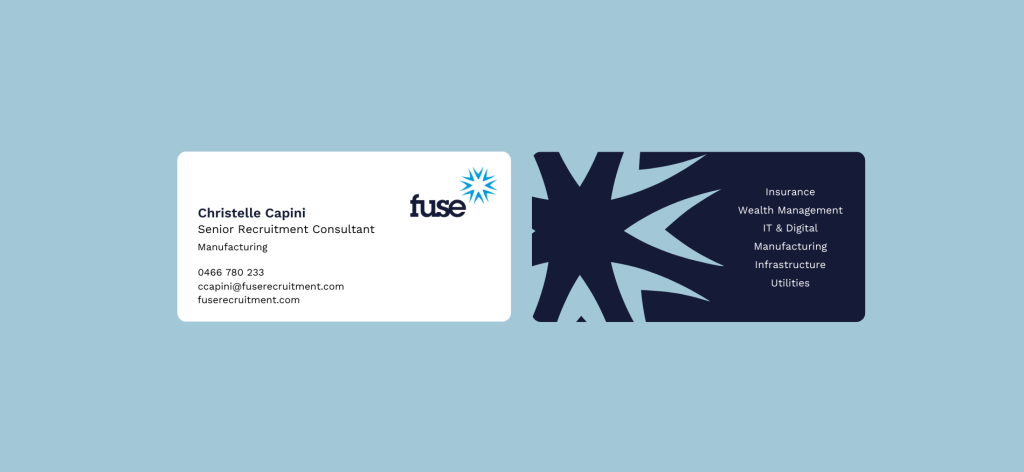Ace Your Next Job Interview with These Top 8 Do’s and Don’ts
Navigating a job interview can be nerve-wracking, particularly when it’s a position you’ve been dreaming of. But a job interview gives you the opportunity to showcase your skills and personality to potential employers. However, success in interviews is not merely about answering questions; it’s about crafting a compelling narrative that reflects your professionalism, preparedness, and…
Navigating a job interview can be nerve-wracking, particularly when it’s a position you’ve been dreaming of.
But a job interview gives you the opportunity to showcase your skills and personality to potential employers. However, success in interviews is not merely about answering questions; it’s about crafting a compelling narrative that reflects your professionalism, preparedness, and genuine interest in the position.
What strategies can you employ to ensure a successful interview, and what common mistakes should you avoid at all costs?
Here are our Do’s and Don’ts so you can ace your next interview.
Do’s
1. Pre-Interview Research
Conducting thorough research on the company before your meeting not only positions you ahead but also underscores your genuine interest in the industry:
Company Values and Purpose: Familiarise yourself with the core values and purpose of the company. This knowledge will enable you to align your own values with the organisation’s ethos.
Significant Projects: Identify notable projects the company has undertaken and think about why they stood out to you. This insight demonstrates a keen awareness of the company’s achievements.
Awards: Take note of any accolades the company has earned. Recognising their accomplishments adds depth to your understanding of their industry standing.
Industry Information: Gain insights into the broader industry landscape. Understanding industry dynamics enhances your ability to discuss relevant topics during the interview.
Company Size and Trends: If the company is sizable, investigate trends or recent news related to its operations. This information provides context and demonstrates your awareness of the company’s current standing.
Client Base/Product Bade: Understand the company’s client base or product base. Knowledge of their clientele showcases your awareness of the company’s market positioning and target audience.
By investing time in this pre-interview research, you not only equip yourself with valuable information but also convey a genuine interest and preparedness that can set you apart in the interview process.
2. First Impressions
Your presentation not only reflects your keen interest in the position but also showcases your commitment to making a positive and lasting impression:
Professional Attire: Dress appropriately for the industry and company culture. A polished and well-thought-out outfit can significantly contribute to a positive first impression.
Confident Body Language: Project confidence through your body language. Maintain eye contact, offer a firm handshake, and sit up straight. These non-verbal cues convey assurance and professionalism.
Engaging Introduction: Craft a concise and engaging introduction that highlights your key strengths and experiences. This sets a positive and confident tone for the rest of the interview.
Active Listening: Demonstrate active listening skills throughout the interview. Looking the interview in the eye and not around the room as well as avoiding the urge to interrupt or speak while the interviewer is speaking.
Research-Based Questions: Ask thoughtful questions about the company, role, and industry based on your research. This demonstrates your genuine interest and proactive approach to understanding the organisation.
Smile and Positive Demeanour: Maintain a friendly and positive demeanour. A genuine smile and a positive attitude can create a welcoming atmosphere and leave a lasting impression.
Express Enthusiasm: Communicate your enthusiasm for the opportunity. Expressing genuine excitement about the role and the prospect of contributing to the company can leave a memorable impression.
Remember, a combination of preparation, professionalism, and genuine interest can set the stage for a compelling first impression, laying the foundation for a successful interview.
3. Preparing for Interviews Answers & Questions
In the lead-up to an interview, it’s crucial to acquaint yourself with commonly asked questions. However, resist the urge to script lengthy responses on paper. Instead, opt for concise notes or bullet points to keep your answers genuine during the actual interview. The key is to respond clearly while ensuring the interviewer receives the necessary background information.
Equally important is the preparation of thoughtful questions for the interview. Tailor these to be specific to the position and the company.
Crafting a well-considered list of questions not only showcases your enthusiasm, involvement, and genuine interest but also serves as a final opportunity to show your relevant skills and expertise.
4. Showcasing Your Strengths
When aiming to make a positive impression in an interview, emphasising your strengths becomes crucial. When presenting these strengths to the hiring manager, provide specific examples to illustrate their application. For instance, if you possess strong problem-solving skills, share a situation where your innovative approach led to a successful outcome.
Consider incorporating these tips to effectively showcase your strengths:
Be Specific: Instead of vague statements, provide concrete examples that highlight the practical application of your strengths in real-world situations.
Quantify Achievements: Whenever possible, quantify the impact of your strengths. Whether it’s time saved, revenue generated, or team efficiency improved, numbers add weight to your accomplishments.
Connect to the Role: Relate your strengths directly to the requirements of the position. This demonstrates not only self-awareness but also a tailored understanding of how your strengths align with the job.
Use the STAR Method: Structure your responses using the STAR method (Situation, Task, Action, Result) to ensure a clear and comprehensive explanation of how you’ve utilised your strengths in the past.
By incorporating these tips, you can effectively articulate your strengths, providing the hiring manager with a vivid picture of how you can positively contribute to the team’s success in the desired role.
Don’ts
1. Discussing Past Workplaces
When speaking with the hiring manager, never say anything negative about a past workplace, even if you had a terrible experience. Interviewers will assume that you’ll talk poorly of them later on or that you’ll bring the same attitude to work. Say something positive about each employment you’ve held as hiring managers want to see a positive mindset.
Instead, focus on the following points when discussing previous employers:
Emphasise Learning Opportunities: Highlight the valuable lessons and skills gained from each job, showcasing your ability to turn challenges into learning experiences.
Speak about Achievements: Share accomplishments and successes from your past roles, demonstrating your capability to contribute positively to a team and achieve results.
Discuss Professional Growth: Detail instances where you experienced professional growth and development within the company, underscoring your commitment to continuous improvement.
Highlight Positive Relationships: Emphasise positive working relationships with colleagues and superiors, illustrating your ability to collaborate effectively and foster a harmonious work environment.
Mention Company Values Alignment: Discuss how your values align with those of your previous employers, showcasing your compatibility with the organisational culture.
Express Gratitude: Communicate appreciation for the opportunities provided by past employers, indicating a respectful and appreciative attitude towards the professional experiences you’ve had.
By incorporating these points into your discussions about previous employers, you not only avoid negativity but also present yourself as a candidate who values growth, collaboration, and positive contributions to the workplace.
2. Interview Honesty
In an interview, strive to provide truthful responses to questions and avoid presenting inaccurate information regarding your past experiences on your resume. Providing false details can jeopardise your prospects for the current position and any potential future opportunities. When confronted with inquiries about areas that may not align with your strengths, be transparent. Communicate your willingness to learn and develop, assuring the interviewer of your openness to acquiring additional skills and knowledge.
3. Your Digital Footprint
Prior to submitting a job application, it is crucial to ensure that your digital footprint remains pristine, devoid of any content or images that could potentially undermine your chances during the interview process. Consider the following tips to safeguard your online presence:
Review Privacy Settings: Take a moment to assess and adjust the privacy settings on your social media accounts, particularly platforms like Instagram. Making your accounts private restricts access to your posts, allowing you to control who can view your content.
Curate Content: Scrutinise your social media posts and remove any content that might be perceived negatively by potential employers. This includes inappropriate images, controversial opinions, or any material that may raise concerns.
Professionalise Your LinkedIn: Enhance your LinkedIn profile by adding a professional headshot and detailing relevant work experience. Ensure that your profile accurately reflects your skills, qualifications, and career achievements.
Google Yourself: Conduct a self-search on popular search engines to see what information is readily available about you. Address any inaccuracies or unprofessional content that may appear, as employers often conduct online searches on candidates.
Be Mindful of Comments and Interactions: Monitor and moderate comments on your posts. Avoid engaging in heated or controversial discussions, as these interactions may reflect poorly on your professional image.
By implementing these tips, you can actively manage and maintain a positive digital presence, ensuring that your online identity aligns with the professional image you want to convey during the interview process.
4. Moving Beyond Rejections
It can be difficult to find a new job, try to regard each interview as a fresh chance and take note of any mistakes you’ve made in the past. Even if you’re no successful you can grow and learn from every experience. Here are some tips to help you navigate and bounce back:
Maintain a Positive Mindset: Keep a positive outlook and remember that rejection is a common part of the job search journey. Use it as an opportunity for personal and professional growth.
Seek Feedback: Request feedback from interviewers or recruiters. Understanding why you weren’t selected can provide valuable insights for improvement in future interviews.
Learn from Rejections: Treat each rejection as a learning experience. Identify areas for improvement, whether it’s enhancing certain skills or refining your interview techniques.
Build Resilience: Develop resilience to cope with setbacks. Recognise that rejection is not a reflection of your worth but rather a part of the competitive job market.
Stay Persistent: Keep a persistent and proactive approach in your job search. Continue applying to positions, networking, and refining your application materials.
In the realm of job interviews, success goes beyond just acing questions; it involves crafting a narrative that mirrors your professionalism, preparedness, and genuine enthusiasm for the role. Each interview serves as a unique opportunity to hone your skills and brings you one step closer to securing that dream position!
If you are looking to take the next step in your career, content our team of experts today







